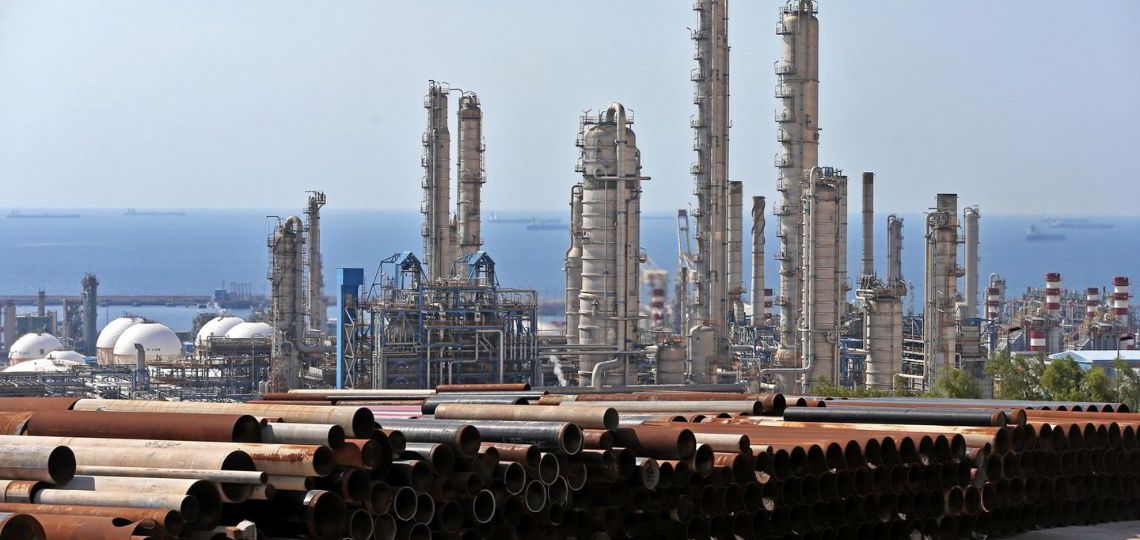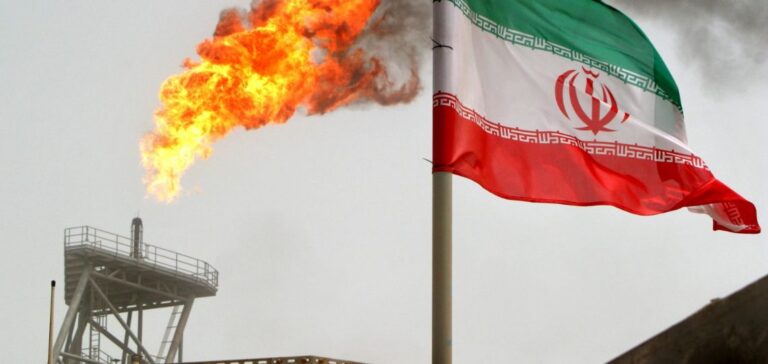South Pars is on track for full completion in 2021. The Iranian operator has just announced the start of drilling operations for phase 11 of the gas field. Other phases will be completed over the next 6 to 9 months. In all, the gas field will be capable of producing between 725 and 775 millionm3 of gas per day.
For many observers, the announcement of the project’s completion comes as a surprise, given the extent to which Iranian industry is handicapped by US sanctions. Tehran was able to overcome these difficulties and even boasts of having completed the project ahead of schedule. This gas field is the world’s largest natural gas field, holding 8% of global reserves. However, there are still many hurdles to overcome before Iran can finally become a gas superpower.
South Pars: a chaotic development
South Pars is an offshore gas field discovered in 1990 by Iran’s national gas company NIOC. Straddling Iran and Qatar, it is also known as the North Dome (north field). The latter own 62% of the field (6,000 km2), while Tehran has to make do with 3,700 km2. Above all, Qatar has been exporting liquefied natural gas (LNG) since 1996.

On the Iranian side, operations only began in 2002, and development has been hampered by US sanctions. By 2018, only 10 of the 24 project phases had been completed. Yet the situation changed for the better following the 2015 nuclear agreement, with sanctions gradually lifted for the gas sector. Attracted by the virtual absence of geological constraints, Total was able to invest in phase 11 of the South Pars project in 2016.
Nevertheless, Trump’s decision to exit the nuclear deal in 2018 has resulted in a return of sanctions. Under these conditions, the oil and gas company withdrew from the project, selling its shares to the Chinese state-owned company CNPC. A year later, the end of American exemptions led to the departure of the Chinese giant, leaving the Iranians to fend for themselves. Since then, the project has been entirely in the hands of NIOC and its subsidiaries.
How did Iran manage to exploit South Pars?
Since 2019, Iran has therefore had no access to capital and technology from foreign companies to boost its gas production. However, the country has managed to bring almost the entire gas field on stream, a target that will be reached in 2021. This success is due to the support of China, which skilfully circumvented US sanctions. So, far from having left the Iranian market, Chinese firms are operating in the country through project contracts.
Since they no longer operate directly, these companies can continue to supply their Iranian partners without being subject to sanctions. In terms of technology and financing, Chinese players are providing massive support for Iran’s gas sector. This method has been widely promoted by Beijing, which wishes to consolidate its geostrategic alliance with Teheran. This support is all the stronger given that the two countries recently signed a 25-year economic partnership.
Under the agreement, Iran will benefit from a promise of 400 billion Chinese investments between now and 2045. In return, China is guaranteed priority access to the country’s oil and gas resources. Beijing will also benefit from an estimated 12% discount on the price of hydrocarbons. It’s easy to see why China is such a strong supporter of the South Pars project and Iran’s gas sector.
The LNG hurdle
Thanks to its economic partnership, China intends to secure a long-term supply of gas from Iran. Indeed, according to the International Energy Agency (IEA), Beijing will be the world’s largest importer of LNG by 2024. Iran will also help reduce China’s dependence on Qatari gas, thus avoiding the need to transit the Strait of Hormuz. Qatar now accounts for almost 15% of China’s gas imports.
Becoming a gas superpower
For Iran, the development of South Pars means that it now has the means to become a gas export superpower. Tehran currently has the world’s second-largest reserves, but is not even among the top fifteen exporters. This weakness is explained by the weight of domestic consumption and the absence of liquefied natural gas (LNG) infrastructure. Even today, all Iranian gas exports are carried out via pipelines, which de facto limits the conquest of new markets.
The challenge, however, will be to find the expertise and financing needed to build LNG terminals. As these infrastructures are extremely expensive to develop, Chinese support may not be enough in the future. Moreover, Iran is entirely dependent on foreign technology to liquefy its gas. For the time being, however, only Gazprom has decided to invest in LNG production in Iran.
The solution may well come from the United States
The Russian giant has bought out the German company Linde’s stake in the construction of a liquefaction plant in Tombak. However, this commitment remains too limited to make Iran a major player in liquefied natural gas (LNG). Perhaps the solution will come from the United States, with the election of Joe Biden. The latter could in fact use the lifting of sanctions as a quid pro quo for a future nuclear agreement.
The development of LNG infrastructure will therefore play a key role in Iran’s ability to export its gas. Tehran is currently lagging far behind in this field, with no large-capacity LNG terminal. The next few months will therefore be decisive, with the arrival of a new American administration ready to negotiate the lifting of sanctions.






















